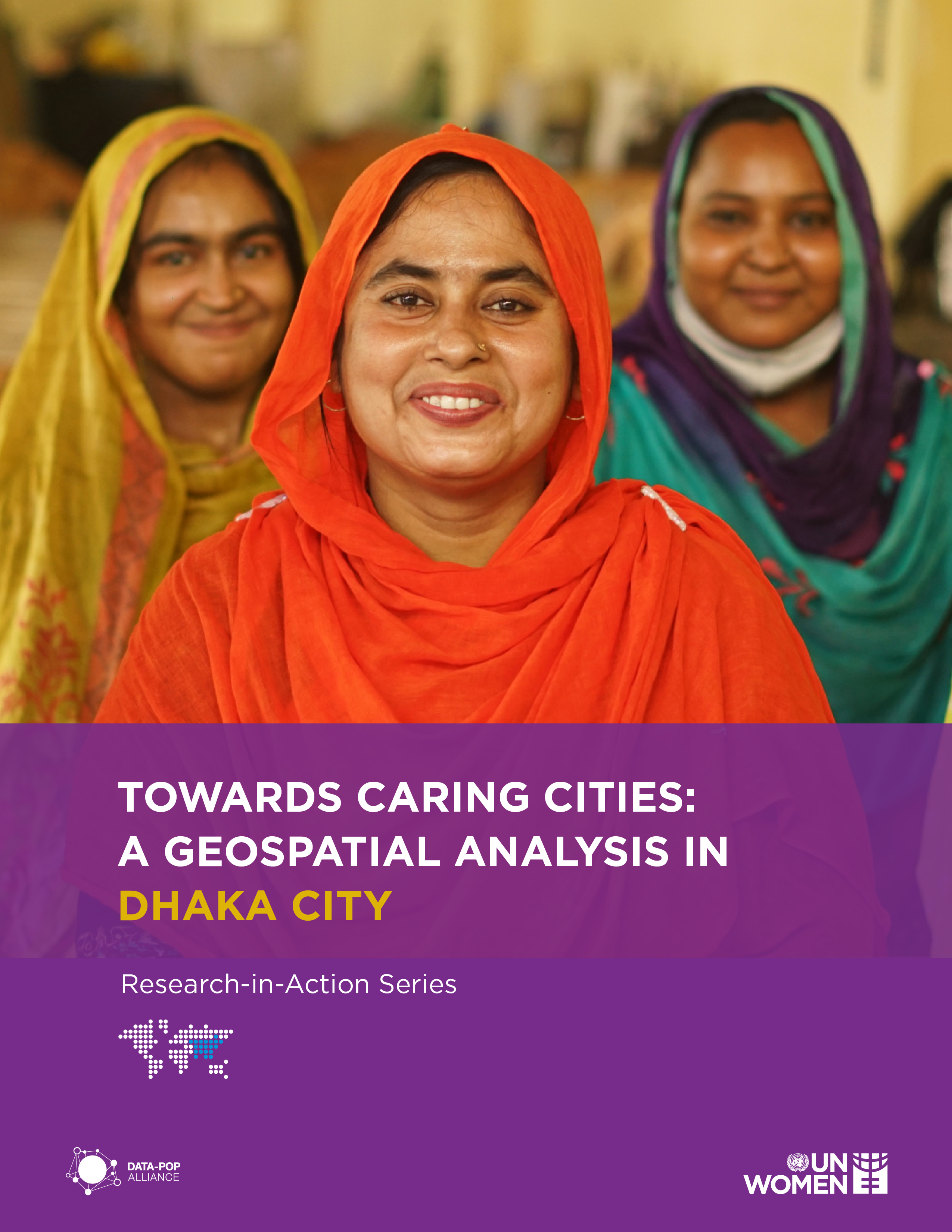As part of UN Women’s “TransformCare Investment Initiative” in the Asia and Pacific region, this project aimed to promote evidence-informed decision making for equitable care systems as a foundation for inclusive urban development. UN Women led the initiative, with DPA providing analytical and research support.
Focusing on Dhaka City, Bangladesh the project assessed the demand and supply of care services through a gender-inclusive lens. Drawing on geospatial analysis, satellite imagery, and administrative data, the research mapped care-related infrastructure, including early childhood education, eldercare, disability services, and community-based care facilities, while identifying underserved areas and gaps in service provision. The objective was to generate data-driven recommendations to guide urban planning and investment in affordable, accessible, and quality care systems that recognize women’s unpaid care work and strengthen community resilience.

